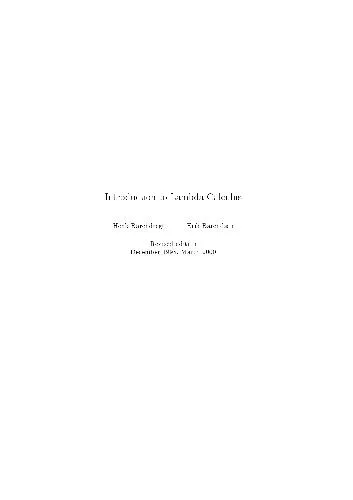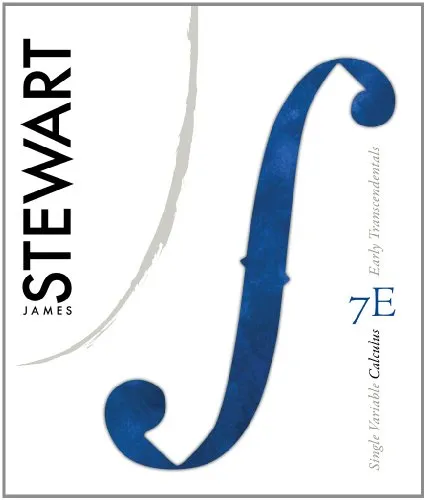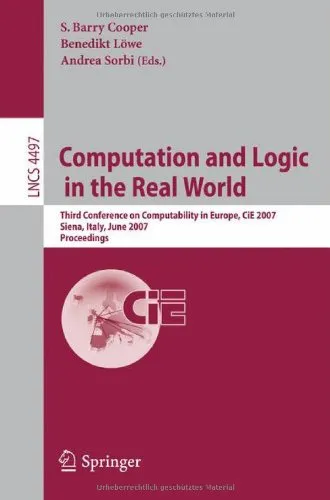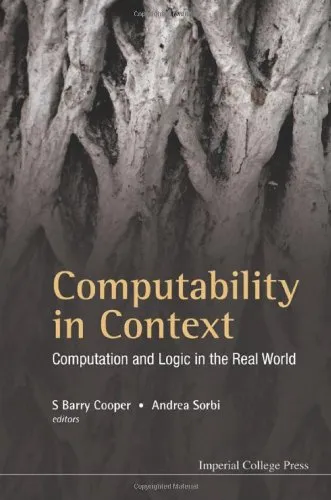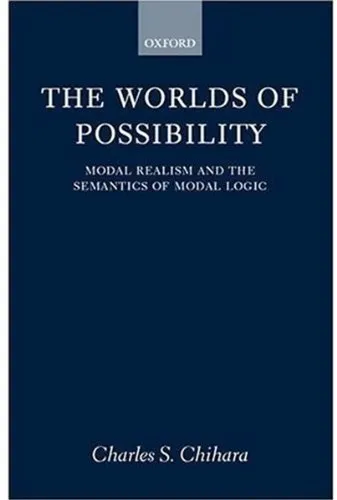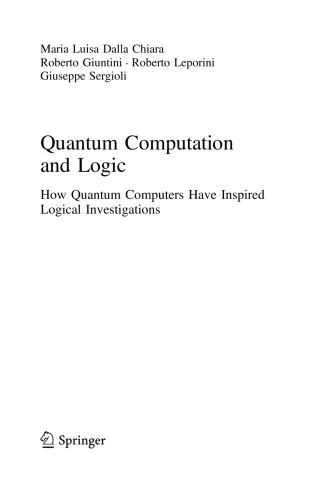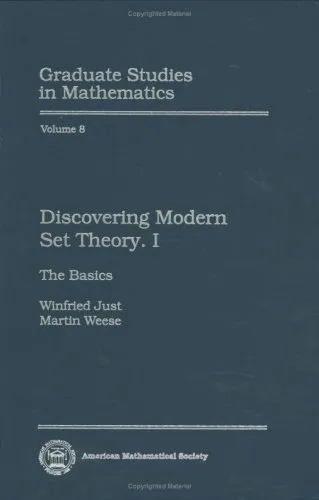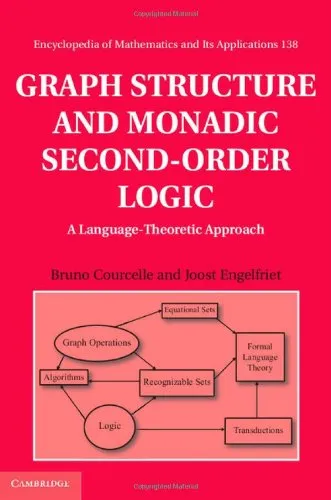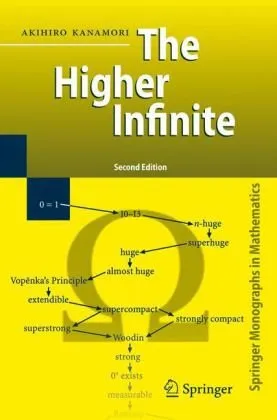Introduction to Lambda calculus
4.5
Reviews from our users

You Can Ask your questions from this book's AI after Login
Each download or ask from book AI costs 2 points. To earn more free points, please visit the Points Guide Page and complete some valuable actions.Related Refrences:
Introduction to Lambda Calculus
The study of Lambda Calculus forms the foundational basis of modern theoretical computer science and functional programming. 'Introduction to Lambda Calculus' by Barendregt H. and Barendsen E. is a profound and meticulous exploration of this elegant formal system. This book bridges the gap between abstract mathematical formalism and its real-world applications in programming languages, offering both clarity and rigor.
This introduction is designed to provide an overview of the book and explain its significance in computer science, mathematics, and logic. By reading it, you will gain a detailed understanding of what the book covers, its core takeaways, and timeless ideas that have influenced countless areas of study.
Detailed Summary of the Book
Lambda Calculus is a formal system that captures the essence of computation. From its simple definitions of functions, variables, and applications, Lambda Calculus has evolved to become a central concept in logic, programming, and beyond.
The book begins by introducing the syntax and semantics of Lambda Calculus, explaining its simple yet powerful constructs. It emphasizes alpha-conversion (changing bound variable names), beta-reduction (applying functions to arguments), and eta-conversion (simplifying functions). These foundational ideas are explored through examples that reveal their computational power.
Building on these basics, the authors delve into advanced topics, including the Church-Rosser Theorem and its implications for the consistency of the calculus. The concept of normal forms, fixed-point combinators, and recursion is discussed in detail, providing the reader with both the theoretical and practical significance of Lambda Calculus in defining and analyzing algorithms.
Finally, the book connects Lambda Calculus to modern disciplines, including its profound role in functional programming languages such as Haskell and Lisp, and its importance in modeling logic systems. Readers will gain insight into how abstract mathematical principles translate into tools used to structure software systems.
Key audience: This book is suitable for mathematicians, computer scientists, and anyone intrigued by the foundation of computation and algorithm design. While the book assumes a certain level of mathematical maturity, its clear explanations and examples ensure accessibility to motivated readers.
Key Takeaways
- A strong foundation in the principles of Lambda Calculus, including syntax, semantics, and transformations.
- An understanding of the equivalence between computation and logical proof (Curry-Howard correspondence).
- Insight into the theoretical underpinnings of functional programming languages.
- Hands-on knowledge of fixed-point combinators and recursive function definitions.
- An appreciation for the elegance and simplicity of Lambda Calculus in defining computation and algorithms.
Famous Quotes from the Book
"Lambda Calculus represents the very essence of computation, encapsulating abstract ideas in a framework of infinite elegance and simplicity."
"The beauty of Lambda Calculus lies in its dual nature—bridging pure mathematical logic and the computational reality of programming."
"In decomposing computation into its simplest terms, we uncover fundamental truths that connect algorithms, logic, and human thought."
Why This Book Matters
Lambda Calculus is the cornerstone upon which modern computer science is built. This book is not merely an academic text but an essential resource for understanding how computation works at its most fundamental level.
The theoretical framework laid out in this book has influenced the development of programming languages, automated theorem proving, and the semantic modeling of computation. By understanding Lambda Calculus, programmers can write cleaner, more efficient code and build systems that are both elegant and powerful.
Furthermore, the book’s historical exploration of Lambda Calculus sheds light on the intellectual journey of figures such as Alonzo Church and Haskell Curry, whose work laid the groundwork for many of today's technological advances. The inclusion of real-world applications in functional programming and logic makes this book highly relevant to modern computational challenges.
In a world increasingly driven by algorithms, artificial intelligence, and software systems, having a solid grasp of Lambda Calculus will empower the reader to tackle both theoretical and practical problems with confidence and precision. This book matters because it teaches not just a formalism but a way to think computationally.
Free Direct Download
You Can Download this book after Login
Accessing books through legal platforms and public libraries not only supports the rights of authors and publishers but also contributes to the sustainability of reading culture. Before downloading, please take a moment to consider these options.
Find this book on other platforms:
WorldCat helps you find books in libraries worldwide.
See ratings, reviews, and discussions on Goodreads.
Find and buy rare or used books on AbeBooks.
1390
بازدید4.5
امتیاز0
نظر98%
رضایتReviews:
4.5
Based on 0 users review
Questions & Answers
Ask questions about this book or help others by answering
No questions yet. Be the first to ask!
